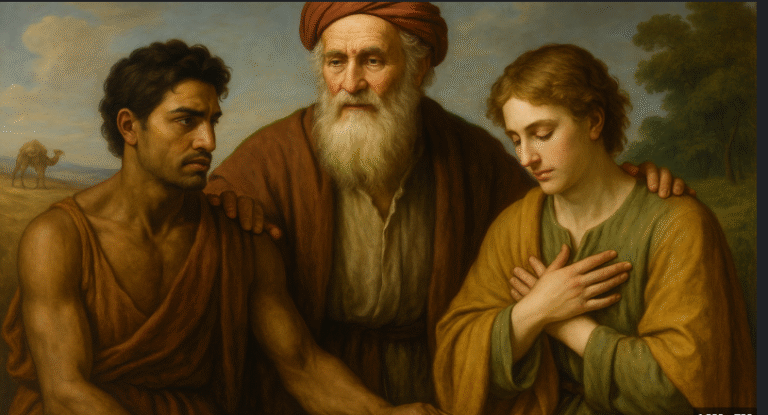What is Spirituality?
At its core, spirituality is the pursuit of connecting with something beyond the physical or material world. It encompasses a range of experiences, beliefs, and practices that help individuals cultivate a sense of meaning, purpose, and belonging. Spirituality is unique to each person—it may involve meditation, mindfulness, contemplation of nature, religious practices, or simply a dedication to personal growth and kindness.
For some, spirituality may include connecting with a higher power, the universe, or nature. For others, it might mean an inward journey toward discovering inner peace, resilience, and clarity. There’s no single definition or path, making spirituality a flexible, inclusive approach to enhancing one’s quality of life.
How Beginners Can Learn Spirituality
Starting a spiritual journey can be daunting for beginners, especially with the abundance of philosophies and practices available. Here are some effective steps and methods that can help:
- Set an Intention
Begin with a clear intention. Reflect on why you’re interested in exploring spirituality—whether it’s for personal growth, finding inner peace, or understanding the world on a deeper level. Setting an intention will help guide your journey and keep you aligned with your purpose. - Educate Yourself
Read books, attend talks, or join online courses to understand different spiritual perspectives. Explore various approaches like meditation, mindfulness, yoga, or prayer, and see which resonates most with you. - Practice Mindfulness
Mindfulness is a simple yet profound way to start. By being present and observing thoughts without judgment, you become more aware of your inner self and emotions. This awareness can be the foundation for further spiritual growth. - Meditate Regularly
Meditation is one of the most powerful practices for spiritual beginners. Starting with even five minutes a day can help calm the mind, reduce stress, and cultivate a deeper connection to oneself. Over time, meditation opens up avenues for self-reflection and inner peace. - Connect with Nature
Nature is a powerful teacher and healer. Spend time outdoors, observe your surroundings, and tune into the natural rhythms of life. Nature can be a grounding force, reminding us of our place in the larger universe. - Seek Community
Joining a community of like-minded people can be highly supportive, as they provide a safe space to discuss thoughts, experiences, and doubts. This community may come from spiritual centers, yoga classes, or online forums. - Journal Your Journey
Journaling allows you to record your thoughts, insights, and experiences as you delve into spirituality. Over time, you’ll notice personal growth, and the reflections can help you track your journey.
Tips for Beginners
Starting spirituality doesn’t have to be a rigid or overwhelming process. Here are some tips to make it a fulfilling experience:
- Start Small: Spirituality doesn’t require drastic changes or intense practices. Begin with small, daily actions like gratitude, deep breathing, or a few minutes of meditation.
- Be Patient: Spiritual growth is gradual. Don’t rush or expect immediate transformation. Take things one step at a time.
- Stay Open-Minded: Be open to new ideas and practices, even those that seem unfamiliar. Growth often happens outside of our comfort zones.
- Embrace Reflection: Regular reflection on your thoughts, beliefs, and experiences can provide clarity and help deepen your understanding.
The Scope and Benefits of Spirituality for Beginners
The scope of spirituality is vast and can encompass several aspects of a person’s life. For beginners, spirituality can lead to:
- Enhanced Emotional Well-Being
Spiritual practices like meditation and mindfulness improve mental health by reducing stress and anxiety and increasing positive emotions. - Personal Growth and Self-Discovery
Spirituality fosters a journey of self-discovery, where you gain a deeper understanding of yourself, your desires, fears, and strengths. - Improved Relationships
As you learn more about yourself and practice compassion, you become better at empathizing with others, leading to more meaningful relationships. - Sense of Purpose and Meaning
Spirituality helps people find a deeper sense of purpose, making life’s challenges easier to face and adding significance to daily experiences. - Inner Peace and Resilience
Through spirituality, individuals often develop a stronger inner resilience and the ability to remain calm amid adversity, as they learn to see challenges from a broader perspective.
The Impact of Spirituality
The impact of spirituality is profound and far-reaching. For beginners, the immediate impact is often a feeling of peace and relaxation. Over time, they might experience personal transformation, a shift in perspective, and a deeper connection with themselves and others. Spirituality’s impact isn’t just personal; it can also influence communities by encouraging compassion, understanding, and collective well-being.
Why Spirituality is Important for All
In today’s fast-paced, materialistic world, spirituality offers a refreshing perspective, encouraging us to slow down, reflect, and connect with something beyond the daily grind. Here’s why spirituality holds importance for everyone:
- Holistic Well-Being: Spirituality supports not only mental health but also emotional and physical well-being.
- Better Coping Mechanism: It provides tools to handle stress, grief, and adversity in a healthy way.
- Sense of Belonging: Spirituality fosters a sense of interconnectedness, helping individuals feel part of a larger purpose or community.
- Sustainable Happiness: Unlike material pursuits, spirituality offers long-lasting fulfillment and joy.














